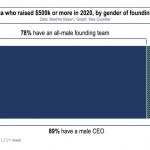How Western Definitions Perpetuate Ethnocentric Bias – Even Among the Social Impact Crowd
Note: This post is one of NextBillion’s 12 most influential posts of 2018.
The Oxford Dictionary updates its content quarterly—so looking at some words added in early 2018 presents a snapshot of today’s world. The millennial favorite, “hangry” is a new arrival… I mean, is there really a better way to describe how hunger begets anger? I would be lying if I didn’t admit to using this word daily. The #MeToo movement has made its mark with the addition of the verb “mansplaining.” And in case anyone wasn’t feeling the omnipresence of today’s political discord on social media, a “snowflake” is no longer just a feathery ice crystal, but “an overly sensitive or easily offended person, or one who believes they are entitled to special treatment on account of their supposedly unique characteristics.”
But behind every definition is a person (or, in the case of dictionaries, an editorial team of lexicographers) who monitors and tracks word usage, and ultimately determines how something is defined. This leads to a key issue: People are biased, and definitions become influenced by perceptions, backgrounds and life experience. To take one example, social impact is touted as the new, entrepreneurial and sustainable alternative to the traditional—and, many argue, ineffective—humanitarian aid industrial complex. But is social impact hindered by obsolete definitions that perpetuate the same ethnocentric lens that has challenged humanitarian aid over the past century?
Outdated definitions in a forward-looking sector
Ethnocentrism is judging another culture solely by the values and standards of one’s own culture. Ethnocentric individuals judge other groups relative to their own ethnic group or culture, especially with concern for language, behavior, customs and religion.
As the founder of KadAfrica, a social enterprise that works with girls who have dropped out of school to establish their own passion fruit farming cooperatives, I’ve seen this dynamic at play. We provide girls with land, inputs, tools and knowledge to start their farms, while they go through our six-month proprietary life skills, health, savings and entrepreneurship curriculum. Girls begin harvesting at the six-eight month mark, and we purchase back all of their fruit at fair market value, which we bulk, grade and package for wholesale, or process into passion fruit pulp for sale to regional juice processors or on the international market. In the course of this work, I’ve learned through experience how girls – particularly in emerging markets – often fall victim to definitions about who they are and what they are supposed to do/be. Likewise, I’ve seen how social entrepreneurs are forced to adapt to ethnocentric definitions to secure the funding, partnerships and support necessary to grow their enterprises. It’s time to challenge the outdated definitions that afflict traditional aid and push those with the capacity to catalyze this change to rewrite the narrative.
The elephant in the room
I was recently afforded the amazing opportunity to travel with my husband and 5-month-old to Brazil as a finalist for Nestle’s Creating Shared Value (CSV) Prize. As a young mother, I felt empowered to pitch to Nestle’s Creating Shared Value Council; an opportunity made possible through Nestle’s support and the inclusion of my infant daughter into their programming (a luxury I realize most working mothers don’t have). The experience of pitching to a panel with former Nestle C-suite executives, UN heads and top thought leaders across the social impact spectrum was invaluable. Although we weren’t named as the ultimate winner, we were honored to receive a cash prize to support KadAfrica’s integrated life-skills, SRHR and entrepreneurship curriculum-based passion fruit farming program that we call the KadAfrica Experience.
During the due-diligence process for the CSV Prize, a representative from Nestle visited some of our KadAfrica Experience girls. He noted that he was asked to check into the possibility of the KadAfrica Experience being juxtaposed with child-labor, and after learning stories of girls who had taken their passion fruit earnings and life-skills training to build houses for themselves, attend vocational training programs or buy solar panels for their communities, he chuckled and noted that this was obviously a non-issue. So during my time with the CSV panel, I took it upon myself to address this “elephant in the room.”
Is working with out-of-school girls under 18 a form of child labor? No, I explained. We ensure that we receive permission from girls’ families, and letters of support from their local government officials confirming that they are, in fact, out of school and live within a safe distance of their cooperative fruit farm. And we do not employ girls – instead, we provide them with the knowledge, tools and resources to establish their own, self-governed passion fruit farming cooperatives that will ensure them a fair market price, so they are not taken advantage of by traders. The legal working age in Uganda is 14 and universal primary education ends at 12. As a result, 90 percent of girls who are out of school in rural areas are already left to occupy this odd two-year gap with domestic duties, while facing the injustice of economic dependence and battling risky livelihood options like early marriage and sex work.
After explaining this to the panel, I was met with a wall. “The thing is,” the panel responded, “UNICEF’s definition of a child is under 18 years old. It doesn’t matter if the working age in Uganda is 14. The definition of a child is an individual who is under 18. And Nestle, as a global company that works outside of the laws of Uganda, has to be vigilant about the optics of supporting child labor in our value chains.”
There was that word again… definition.
It’s time to challenge antiquated definitions
Here is the thing: We technically become adults at 18. But let’s get real—this definition is a Western construct. Take a look at KadAfrica’s enrollment data for 2017: 81 percent of our girls had a child; 54 percent had more than one child, and 17 percent actually had three or more. Less than half our girls finished primary school, and only 1 percent graduated from high school. Yes, these girls are under 18. But does a 16-year-old girl in rural Western Uganda with three children and a second-grade education really fall under this definition? She has the adult responsibility of supporting her family and is being told that, because of a date on her birth certificate, she should not be able to work and earn because she falls into a certain category.
Yes, UNICEF defines a child as under the age of 18. But then there is the International Labor Organization, another UN agency that states that not all work done by children should be classified as child labor that is to be targeted for elimination. The ILO Convention No. 138 on minimum age recommends that, ideally, countries should ensure that children should not work if they’re below the age of completion of compulsory schooling. The convention recommends that this should not be less than 15 years, but acknowledges and accepts that, for some countries, this age will be 14 years. Member countries with developing economies and educational facilities may appeal for that age to be as low as 13. Child labor is obviously nuanced. And even more confusing, definitions are not only top-down and ethnocentric—they are muddled within the bureaucracy of those who write them, while simultaneously oversimplifying the experience of the populations they affect.
Structure is needed, but ethnocentric definitions can create harm and need to be challenged. In the case of adolescent girls, not recognizing that a young woman who is 14 and out of school can and needs to work leaves her more vulnerable to the worst forms of child labor—sex work and slavery. She didn’t leave school to work; she left school because of poverty and discrimination. By not giving her the chance to do decent empowering work, in many cases we are sentencing her to a life lived in continued poverty and discrimination.
To the world’s detriment, these definitions influence budding social enterprises to change their beneficiary target or mission to conform to classifications set by the individuals and organizations who often hold the financial key to their success. And those with the power—like transnational food companies at the heart of building inclusive value chains—can and should support those with ethical approaches to pushing the boundaries of these definitions through human-centered, bottom-up approaches to social impact. By doing so, those at the bottom of the pyramid will write their own definitions within this new wave of market-based social change.
Rebecca Kaduru co-founded KadAfrica in 2012.
Photos courtesy of KadAfrica.
- Categories
- Agriculture, Education, Social Enterprise



